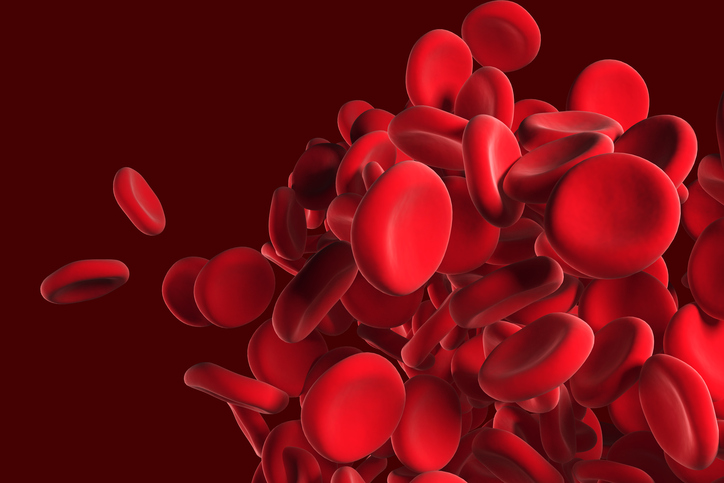
Most cell therapies in development use a T cell or some other type of immune cell that’s engineered to perform a particular therapeutic task. Rubius Therapeutics makes its cell therapies from red blood cells, which could bring advantages compared to immune cells. Rubius’s pursuit of red blood cell-based cell therapies has had some bumps in the road and while the biotech isn’t giving up on such therapies, it is now abandoning its current process for making them.

With the Rise of AI, What IP Disputes in Healthcare Are Likely to Emerge?
Munck Wilson Mandala Partner Greg Howison shared his perspective on some of the legal ramifications around AI, IP, connected devices and the data they generate, in response to emailed questions.
Adoption of a new red cell therapy platform comes with a corporate restructuring that ends the work on two cancer programs that had reached early clinical testing in advanced solid tumors. Cambridge, Massachusetts-based Rubius will maintain its cancer focus and a new lead program is already in preclinical development with the new manufacturing technology, CEO Pablo Cagnoni said during a conference call Tuesday.
Dropping Rubius’s old way of making its red blood cell therapies in favor of the new technology will lead to layoffs. Rubius is reducing its headcount by about 75%. According to the company’s annual report, headcount was 269 as of Jan. 31. Of those full-time workers, 225 work in research and development. In a regulatory filing, Rubius said most of those losing their jobs currently work on RTX-240 and RTX-224, the company’s two clinical-stage cancer cell therapies. The cost-saving measures are expected to make Rubius’s cash last until the end of 2023, when the company should have more details about its new lead program and others in the pipeline.
Turning cells of the body into therapies is still a relatively new concept. CAR T- therapy, made by engineering a patient’s own T cells to recognize tumors, won its first FDA approvals in 2017. At about the same time, Rubius, a product of venture capital firm Flagship Pioneering, was working to reach the clinic with its red blood cells engineered to carry therapeutic proteins.
Red blood cells, which naturally circulate throughout the body, have a life span of up to 120 days. That means a therapy based on such cells offers the potential for a long-lasting effect. Rubius developed a way to make its cells from blood stem cells that come from O negative donors. Using cells from this universal donor blood type was intended to reduce the risk of triggering an immune response. Rubius fell short with its first stab at a red blood cell therapy, which the company was developing for the rare disease phenylketonuria. Manufacturing delays at a third-party company were among the factors that led Rubius to “deprioritize” rare disease two years ago and turn its focus to cancer and autoimmune disease.
Producing red blood cells in bioreactors takes about three weeks, Cagnoni said. That work uses lentiviral vectors to engineer the cells, and the entire process is also expensive, he added. Several years ago, many cell therapy developers looked to acquire or build their own manufacturing plants, the thinking being that owning such capabilities would save time and money compared to outsourcing the work. Rubius was among them.
Rubius raised more than $240 million from its upsized 2018 IPO, which was priced at $23 per share. Some of the IPO proceeds were set aside for the purchase of a manufacturing facility. Shortly after going public, Rubius struck a deal to buy from Alexion Pharmaceuticals a 135,000-square-foot manufacturing facility in Smithfield, Rhode Island. Rubius pledged to invest up to $155 million in the site, which was projected to employ up to 150 people. The company’s new manufacturing process could render the site unnecessary. This process starts with normal, healthy red blood cells sourced from a blood bank. Those cells are engineered with recombinant proteins using a chemical conjugation technology that attaches proteins to the cell membranes.
“So it’s simpler, it’s cheaper, it’s faster,” Cagnoni said. “And it does not require for us to own a manufacturing facility of the scale that we have in Rhode Island right now. It’s a much simpler process that can be in part externalized, and over time, we’ll decide whether there’s any component that needs to be internalized, but at this point, we don’t believe so.”
Rubius is now exploring a possible sale of its Rhode Island facility. Beyond the manufacturing advantages of its new technology, the new platform could also offer longer-lasting benefit and the potential for higher dosing, said Larry Turka, chief scientific officer and head of research & translational medicine at Rubius. The preclinical research so far indicates that these cells have longer circulation times, which the company expects will translate into higher circulation times in clinical testing, he explained. Turka added that the simplicity and speed of the new manufacturing process enable Rubius to escalate a therapy to higher doses than is possible with the earlier Rubius technology.
Over the coming months, Rubius expects to produce new preclinical data, including non-human primate data, with cell therapies that come from the new platform. By the end of the year, Cagnoni said Rubius should be able to provide an update on plans for an investigational new drug application for its lead cancer program. Type 1 diabetes continues to be the lead disease target for Rubius’s autoimmune research.
The six patients in the Rubius cancer programs that have reached early-stage testing will continue to receive the experimental therapy until their disease progresses or they drop out of the clinical trial, Cagnoni said. Rubius expects to complete the layoffs in November. In a regulatory filing, Rubius said that it is unable to make a “good faith determination” of how much the restructuring will cost. According to Rubius’s report of second quarter financial results, the company had $62.2 million in cash and cash equivalents as of June 30.
Photo: virusowy, Getty Images














